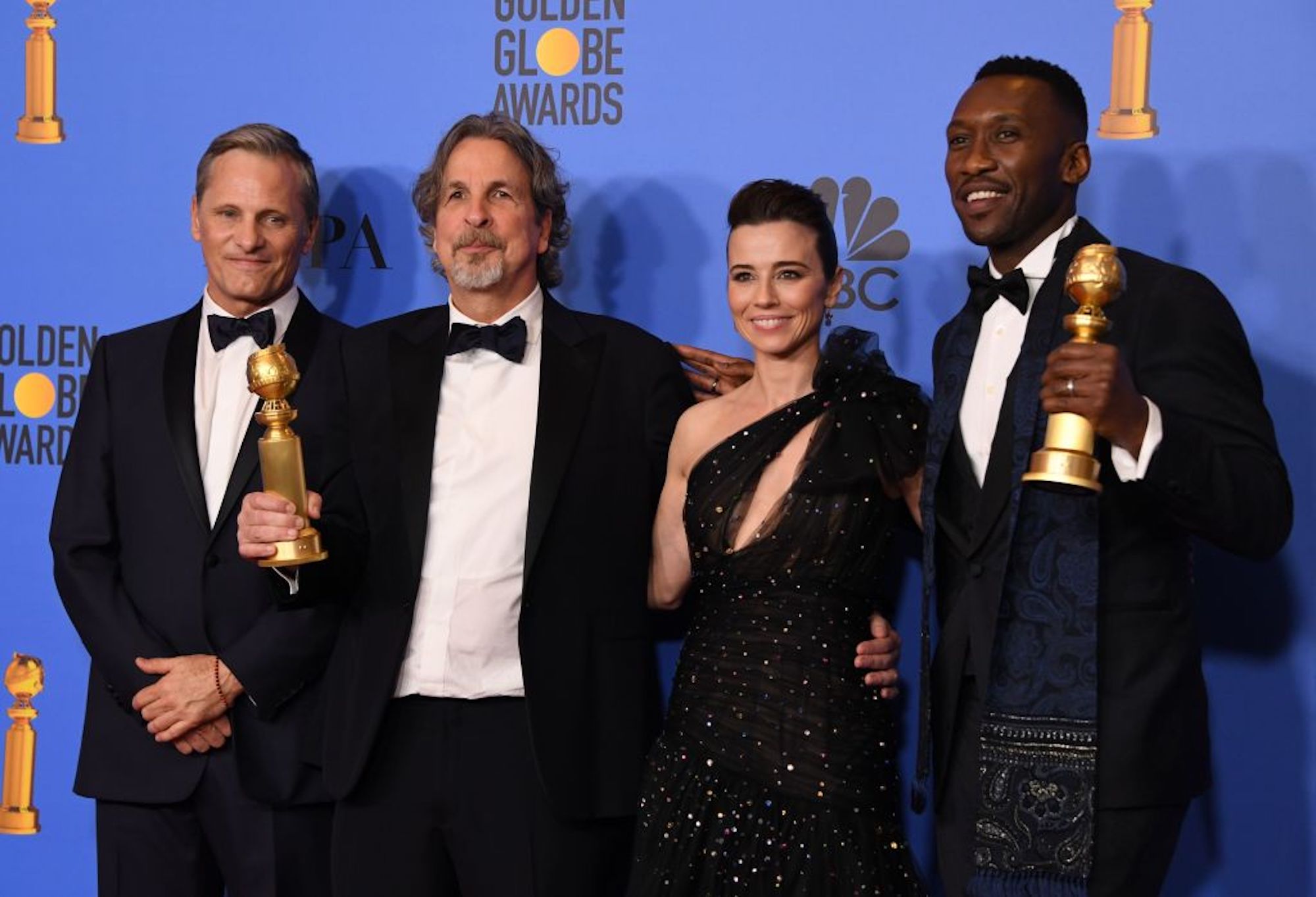The Reality and Fantasy of ‘Green Book’ Crashed into One Another at the Globes

Credit to Author: Taylor Hosking| Date: Tue, 08 Jan 2019 14:09:16 +0000
It would be impossible to know that the now Golden Globe-winning film Green Book is mired in controversy from watching last night’s ceremony. The flick, based on a true story, took home three big awards, including best motion picture musical or comedy, for its depiction of an unlikely friendship between racist Italian driver Tony Vallelonga (Viggo Mortensen) and queer black pianist Don Shirley (Mahershala Ali) while Vallelonga drives Shirley through the south for a tour in 1962.
But when it hit theaters, black audiences were quick to point out that the movie, written by Vallelonga’s son Nick Vallelonga, is rife with a white savior narrative, presenting Vallelonga as the central hero for overcoming his own racism and continually rescuing Shirley from sticky situations. Meanwhile, Shirley’s brother and niece have spoken out against the film, saying they were never consulted in the process and claim it’s full of inaccuracies, including what they feel is an exaggeration of Shirley’s disconnect from black culture and his family. Shirley’s niece, Carol Shirley Kimble, plainly called it, “a white man’s version of a black man’s life.” The story is told mostly from Vallelonga’s perspective, and the film wasn’t marketed as a biopic of Shirley’s life and career. Still, Shirley and that fateful drive through the south provides the main plot of the movie.
The tension around the film lingered during the Golden Globes ceremony. Ali was awarded for best performance by an actor in a supporting role. He didn’t reference the controversy in his acceptance speech but answered a question about it backstage, saying, “I respect the family … and Doc Shirley. I spoke to the studio and the family, and at the end of the day you wish everyone was happy and you don’t want to offend anyone in any capacity.” Ali reportedly called the family to apologize after hearing their concerns post-release, though Mortensen dismissed their claims. When Vallelonga took the stage after winning best screenplay, he quickly threw Shirley into his list of thank you’s before concluding, “but my father, he blessed us with this story.”
The optics were not great then, nor when the cast and crew of Green Book accepted the award for best motion picture in a musical or comedy. The sizable group was nearly all-white save for Ali, who appeared tense, executive producer Octavia Spencer, and a couple people on the outskirts.
It was a typical night for Hollywood, which loves a movie about white characters tackling racism in ways that often erase the experience of black characters. The Blind Side (2010) and The Help (2011) both slayed their awards seasons, with Sandra Bullock winning a Golden Globe for best actress in a motion picture drama and Octavia Spencer winning for best supporting actress in a motion picture, respectively. And Hollywood has always been more kind to films about slavery and its aftermath in the south, like 12 Years a Slave, than ones with more radical politics, like Do The Right Thing, which was iced out of four categories back in 1990. This year was no exception, with If Beale Streat Could Talk, Blackkklasman, and Black Panther losing out in the major categories, save for Regina King who won for best supporting actress. Instead, the Golden Globes saw fit to not only honor Green Book in multiple major categories, but also Bohemian Rhapsody, which won best picture, drama, and best performance by an actor, drama. The Queen biopic was embroiled in its own controversy after it was criticized for its revisionist depictions of Freddie Mercury‘s queerness, drug use, and legendary sexual escapades, as well as major issues with initial director Bryan Singer, who has been accused of sexual misconduct and was fired from the film for failing to show up to work. Yet it still won, showing Hollywood’s continued support of their controversial faves.
The criticisms that bubbled up from audiences and Shirley’s family were loud enough that Green Book’s creators had to respond ahead of the awards shows. That puts a looming cloud over any victory they have this season. As they keep winning, their success, in some ways, proves their critics right—that Hollywood values films about race more when they’re centered around white leads, and the willingness to not just ignore but celebrate problematic storytelling.
The court of public opinion is stronger now, empowered by social media and an overall frustration with the old Hollywood guard. Audiences have had enough. Just as it’s become seemingly mandatory for any awards show hosts to joke about diversity to seem more self-aware, the next big step in acknowledging and rectifying a long history of rewarding films with a white savior complex will have to be with the actual winners. Because Hollywood is not actually getting away with their sleight of hand, making us believe progress is happening when it’s more of the same old, same old. It’s only becoming a more grotesque caricature of itself.
Sign up for our newsletter to get the best of VICE delivered to your inbox daily.
Follow Taylor Hosking on Twitter.
This article originally appeared on VICE US.